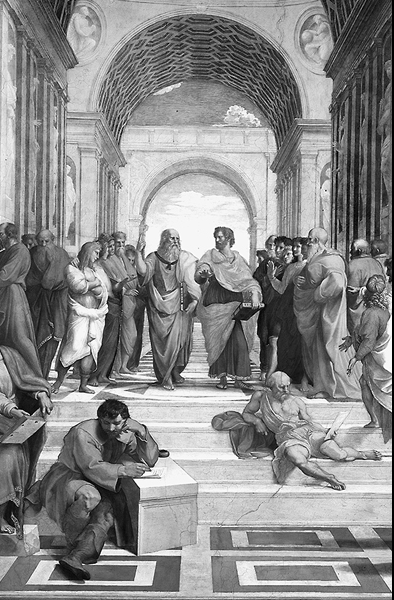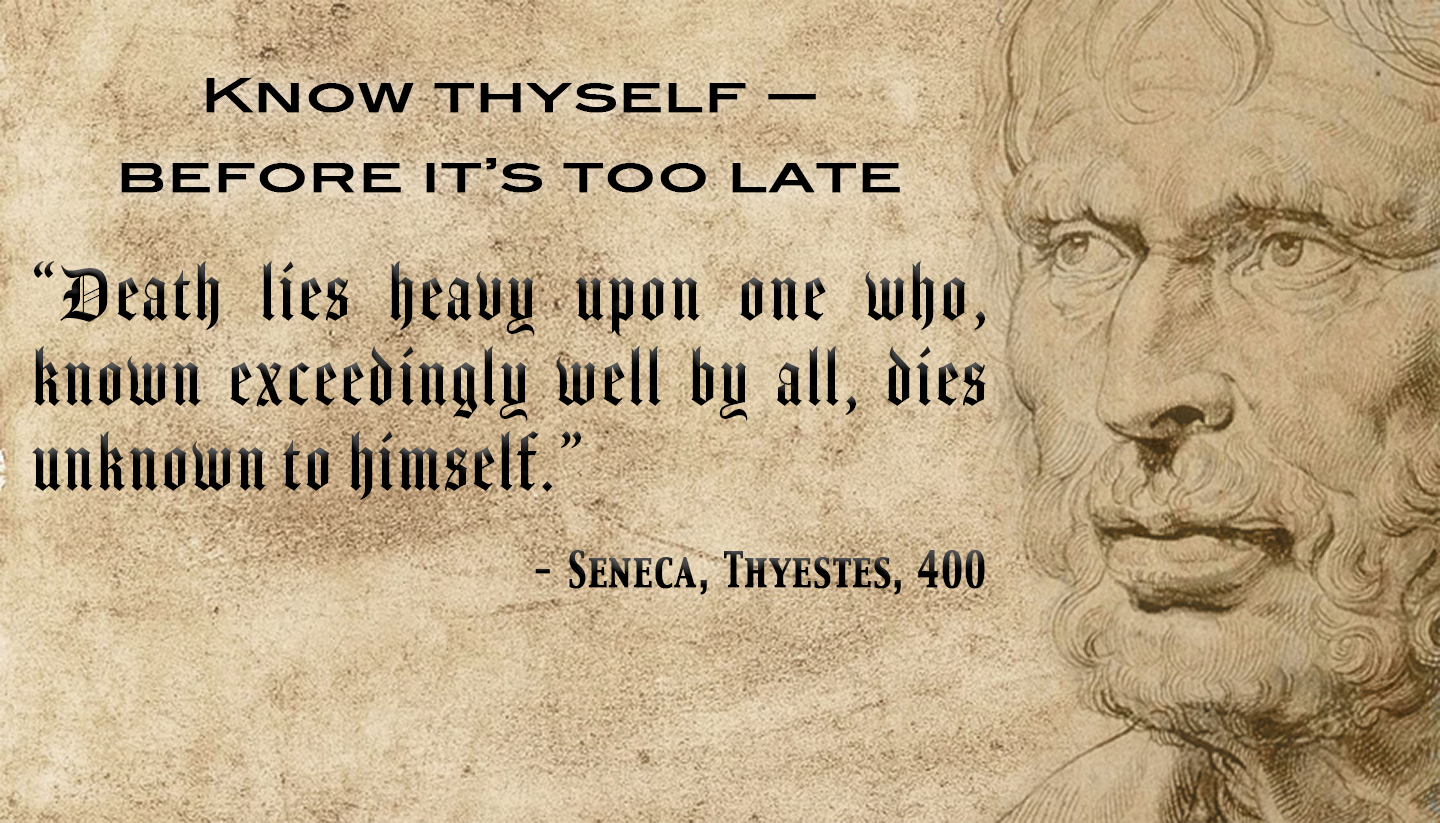The echoes of ancient wisdom often reverberate through the corridors of time, leaving imprints on the philosophical tapestry of human thought. Among these enduring gems are the Delphic Maxims, encapsulated in two poignant phrases: “Know thyself” and “Nothing in excess.” These ageless principles have been explored by countless philosophers, their resonance continuing into contemporary reflections on the human experience.
In the words of Seneca, the stoic philosopher, we encounter a poignant and, at times, distressing reminder of the great importance of self-awareness: “Death lies heavy upon one who, known exceedingly well by all, dies unknown to himself.” This profound observation becomes an urgent call to action in the context of our finite existence. Life’s brevity accentuates the critical need for self-examination. In the journey of conformity to societal expectations, there exists a dangerous path—one that may lead to the touching realization of having lived without truly knowing oneself. The sands of time do not relent, and the longer we delay the profound journey of self-discovery, the greater the risk of echoing Seneca’s words in our final moments—dying without having fully understood the depths of our own being.
In the relentless pace of our modern lives, the delicate art of self-examination all too often finds itself relegated to the backseat. The daily exercise of introspection becomes a neglected practice, leaving individuals grappling with questions about identity and purpose amid the whirlwind of obligations and expectations. It is not merely a personal oversight but a failure to unlock the vast potential for growth and fulfillment that resides within each of us.
To know oneself is not a static, one-time inquiry — it is a dynamic and continuous habit, similar to navigating the ever-flowing currents of a river. The false belief that a singular act of introspection suffices to unravel the complexities of one’s being is like to freezing a moment in time. Life, much like water under the bridge, is in perpetual motion, and so are we. While our essence, our soul, may retain a fundamental constancy, the external currents of experience shape and reshape us. Adaptation becomes not just a choice but a necessity in the ever-changing landscape of our existence. Embracing this truth, we find that the daily commitment to self-examination is not a repetitive chore but a nuanced dance with the unfolding tapestry of our lives, ensuring that we remain in harmony with the ever-changing currents that shape our journey.
“Who am I?” “What’s important to me?” These are not mere inquiries; they are the keys to unlocking the doors of self-awareness. The repetition of such questions is not redundancy but a deliberate effort to peel away the layers of societal expectations and uncover the authentic self. Through this ongoing dialogue with oneself, a deeper understanding emerges, guiding choices and actions.
In the essence of Γνῶθι σεαυτόν lies another possible interpretation: “[Human], Know Thy Place.” Beyond understanding oneself, it beckons individuals to contemplate their role in the grand tapestry of life. This transcends societal expectations, demanding an acknowledgment of personal purpose and responsibility. Knowing one’s place becomes synonymous with understanding one’s role—a role that beckons action. To understand oneself is to grasp the significance of personal responsibility. It is a call to action, an invitation to step into the role one is meant to play in the world. Authentic living is not an evasion of responsibility but a conscious embrace of it. It is a commitment to making the difference one expects from oneself, unencumbered by the weight of societal norms. The time for action is now.
While “Know thyself” beckons us to dive into the depths of our identity, the often-overlooked companion maxim, “Nothing in excess,” offers a guiding principle for the journey. In the tapestry of ethical philosophy, Aristotle‘s profound insight resonates—an insight that asserts that every virtue resides in the delicate balance between two extremes: excess and deficiency.
In the pursuit of self-awareness, the importance of ponderance becomes evident. Aristotle’s ethical theory beautifully articulates that each virtue occupies a middle ground, steering clear of both excess and deficiency. This golden mean is not a stagnant point but a dynamic equilibrium, requiring continual reflection and adjustment.
To know oneself is not just about acknowledging strengths and weaknesses but also about understanding the rhythms of balance. Excesses can lead to arrogance, while deficiencies may result in timidity. It is in the practice of ponderance that we navigate the currents between these extremes, finding the virtuous middle ground that ensures our actions and decisions are aligned with our true selves.
In the labyrinth of existence, the call to “Know thyself” and “Nothing in excess” is not a distant whisper but a guiding light. Through daily self-examination, the layers of conformity are shed, revealing the authentic self. Embracing one’s role in life is not a passive acceptance but an active pursuit of purpose. As we navigate this journey of self-discovery, let us heed the wisdom of the ages and forge a path that is uniquely our own — a path illuminated by the light of self-awareness and the courage to take action.


Leave a Reply